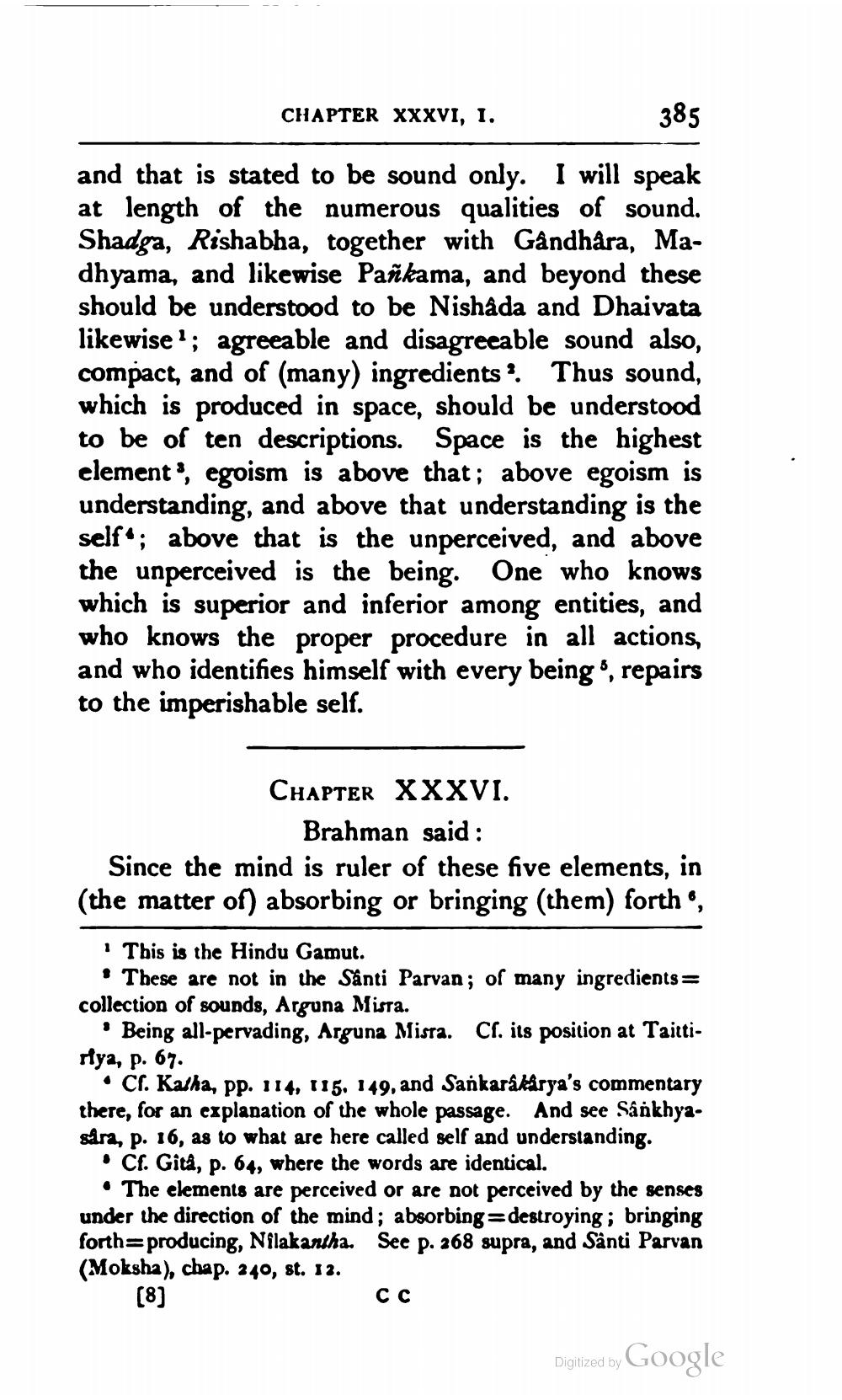________________
CHAPTER XXXVI, 1.
385
and that is stated to be sound only. I will speak at length of the numerous qualities of sound. Shadga, Rishabha, together with Gândhára, Madhyama, and likewise Pañkama, and beyond these should be understood to be Nishada and Dhaivata likewisel; agreeable and disagreeable sound also, compact, and of (many) ingredients. Thus sound, which is produced in space, should be understood to be of ten descriptions. Space is the highest element, egoism is above that; above egoism is understanding, and above that understanding is the self; above that is the unperceived, and above the unperceived is the being. One who knows which is superior and inferior among entities, and who knows the proper procedure in all actions, and who identifies himself with every being', repairs to the imperishable self.
CHAPTER XXXVI.
Brahman said: Since the mind is ruler of these five elements, in (the matter of) absorbing or bringing (them) forth ®,
I This is the Hindu Gamut.
• These are not in the Sânti Parvan; of many ingredients= collection of sounds, Arguna Misra.
• Being all-pervading, Arguna Misra. Cf. its position at TaittiHlya, p. 67.
• Cl. Kasha, pp. 114, 115. 149, and Sankarátärya's commentary there, for an explanation of the whole passage. And see Sääkhyasira, p. 16, as to what are here called self and understanding.
• Cf. Gita, p. 64, where the words are identical.
• The elements are perceived or are not perceived by the senses under the direction of the mind; absorbing=destroying; bringing forth=producing, Nilakantha. See p. 268 supra, and Santi Parvan (Moksha), chap. 240, st. 12.
CC
[8]
Digitized by Google




